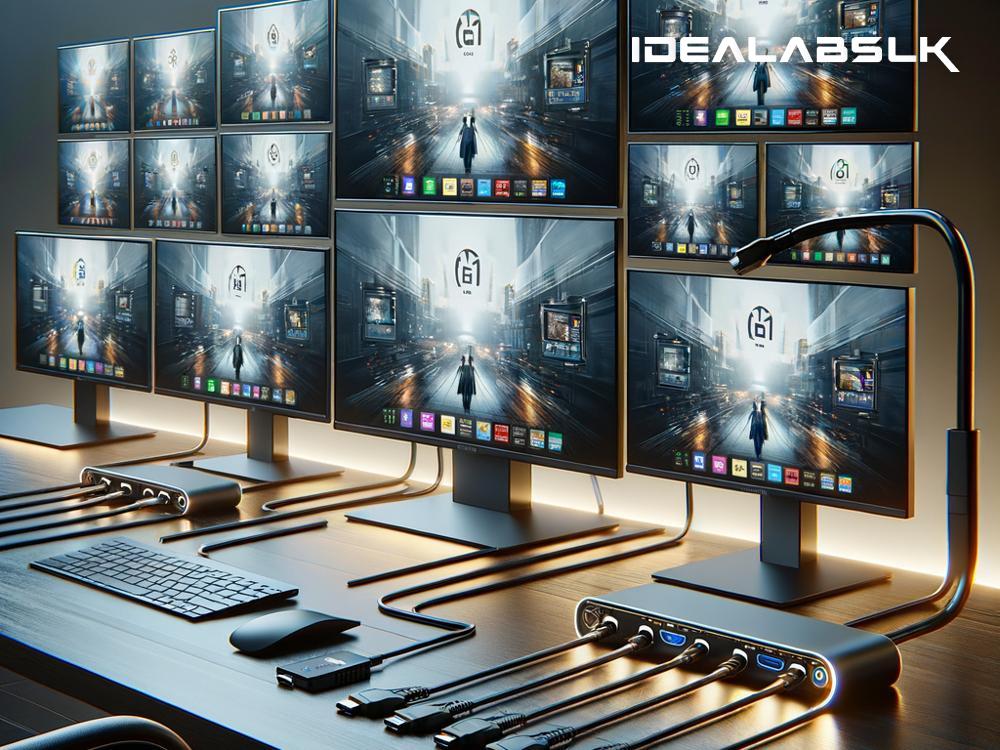Choosing HDMI Splitters for Multi-Screen Setups: A Simple Guide
In a world brimming with digital content, multi-screen setups have become the norm for enhancing viewing experiences, whether you’re a hard-core gamer, a movie enthusiast, or someone who simply enjoys the luxury of having multiple displays. At the heart of such setups, HDMI splitters play a crucial role. But with the plethora of options available, choosing the right HDMI splitter can seem like navigating a maze. Don't worry, though; we've broken down everything you need to know into simple, easily digestible pieces.
What is an HDMI Splitter?
First things first, let’s understand what an HDMI splitter does. Imagine you have one video source, such as a gaming console, and you want to send that signal to two or more screens. An HDMI splitter takes that single signal and "splits" it, allowing you to mirror the content across multiple displays. It’s like cloning your screen so that what you see on one monitor is exactly replicated on the others.
Why It's Important to Choose Right
Choosing the right HDMI splitter is crucial for a seamless viewing experience. The wrong choice can lead to frustrating issues like poor image quality, lag, or even no signal at all on your additional screens. Hence, finding a splitter that matches your specific needs without compromising on quality is essential.
Key Factors to Consider
When shopping for an HDMI splitter, keep these important factors in mind:
-
Compatibility: Ensure the splitter is compatible with your devices and supports the HDMI version they use. HDMI 2.0 is commonly used, but if your gadgets are on the latest tech wave, you might need HDMI 2.1 support.
-
Resolution and Sound: Check that the splitter supports the video resolution you intend to use, such as 4K or HD, and that it’s compatible with your audio needs (Dolby Atmos, DTS:X, etc).
-
Number of Outputs: Decide how many screens you want to connect. HDMI splitters vary in the number of outputs they offer, ranging typically from 2 to 8. Plan according to your setup.
-
Build Quality: A durable build ensures your splitter can handle the wear and tear of constant use. Metal casings are generally more robust than plastic ones.
-
Powered vs. Non-Powered: Powered splitters come with an external power source, which makes them more reliable, especially for longer distances or higher resolutions. Non-powered ones are simpler but might not perform as well in demanding situations.
-
Latency: Low latency is critical for gaming or real-time video editing. Check for splitters that promise minimal lag to avoid delays between your actions and what's displayed on the screen.
Taking the Plunge
Now that you're armed with the knowledge of what to look for, here are some additional practical tips:
-
Read Lots of Reviews: User reviews can be incredibly helpful. Look for patterns in feedback—repeated concerns about durability or compatibility might be red flags.
-
Think Future-Proof: Technologies evolve rapidly. Even if you don't need 4K support now, considering slightly more advanced options could save you from needing an upgrade too soon.
-
Brand Matters: While the brand isn't everything, opting for brands with a solid reputation in the tech space can often ensure better quality and customer support.
-
Budget Wisely: You get what you pay for. While it's tempting to go for the cheapest option, investing a bit more in a quality HDMI splitter can enhance your multi-screen experience significantly.
Conclusion
Creating the perfect multi-screen setup doesn’t have to be complicated or stressful. By understanding what HDMI splitters do and knowing the key factors to consider, you’re well on your way to maximizing your digital experience across multiple displays. Remember, the goal is to find the right balance between your needs, the quality of the splitter, and your budget. Happy screening!
In the end, whether you’re setting up a command center for work, a gaming battle station, or a home cinema, the right HDMI splitter can make all the difference. Take your time, do your research, and get ready to enjoy your content on a whole new level.

